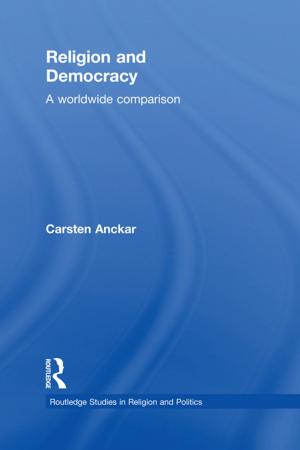Return to Alexandria
An Ethnography of Cultural Heritage Revivalism and Museum Memory
Nonfiction, Social & Cultural Studies, Social Science, Archaeology| Author: | Beverley Butler | ISBN: | 9781315420837 |
| Publisher: | Taylor and Francis | Publication: | July 1, 2016 |
| Imprint: | Routledge | Language: | English |
| Author: | Beverley Butler |
| ISBN: | 9781315420837 |
| Publisher: | Taylor and Francis |
| Publication: | July 1, 2016 |
| Imprint: | Routledge |
| Language: | English |
The Bibliotheca Alexandrina was launched with great fanfare in the 1990s, a project of UNESCO and the Egyptian government to recreate the glory of the Alexandria Library and Museion of the ancient world. The project and its timing were curious—it coincided with scholarship moving away from the dominance of the western tradition; it privileged Alexandria’s Greek heritage over 1500 years of Islamic scholarship; and it established an island for the cultural elite in an urban slum. Beverley Butler’s ethnography of the project explores these contradictions, and the challenges faced by Egyptian and international scholars in overcoming them. Her critique of the underlying foundational concepts and values behind the Library is of equal importance, a nuanced postcolonial examination of memory, cultural revival, and homecoming. In this, she draws upon a wide array of thinkers: Freud, Derrida, Said, and Bernal, among others. Butler’s book will be of great value to museologists, historians, archaeologists, cultural scholars, and heritage professionals.
The Bibliotheca Alexandrina was launched with great fanfare in the 1990s, a project of UNESCO and the Egyptian government to recreate the glory of the Alexandria Library and Museion of the ancient world. The project and its timing were curious—it coincided with scholarship moving away from the dominance of the western tradition; it privileged Alexandria’s Greek heritage over 1500 years of Islamic scholarship; and it established an island for the cultural elite in an urban slum. Beverley Butler’s ethnography of the project explores these contradictions, and the challenges faced by Egyptian and international scholars in overcoming them. Her critique of the underlying foundational concepts and values behind the Library is of equal importance, a nuanced postcolonial examination of memory, cultural revival, and homecoming. In this, she draws upon a wide array of thinkers: Freud, Derrida, Said, and Bernal, among others. Butler’s book will be of great value to museologists, historians, archaeologists, cultural scholars, and heritage professionals.















